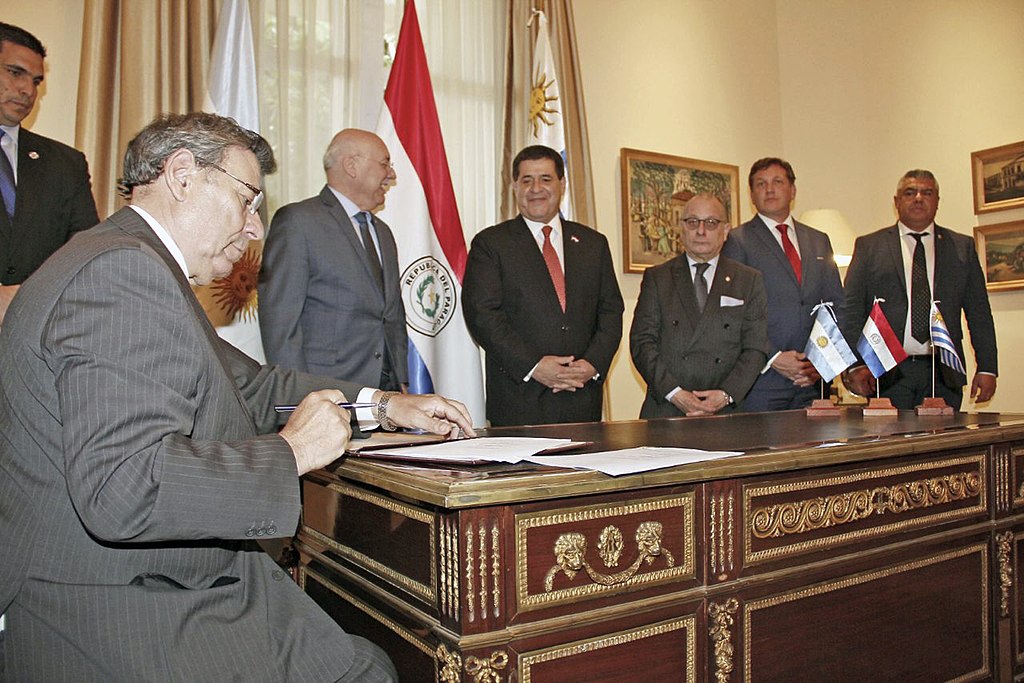A “world” cup like none other

Leaders of Argentina, Paraguay and Uruguay making the initial bid to host in 2030.
Anna Johnson - Every four years, the world comes together to watch one of the largest sporting events in the world. The men’s FIFA World Cup soccer tournament draws more eyes than nearly anything else - over 5 billion people tuned in for the 2022 tournament in Qatar. On top of the billions of people who watch on television, hundreds of thousands travel to the host state to watch the games in person. In the past, one state has acted as the host - typically constructing several additional stadiums to accommodate the tournament's scale. In 2030, however, six countries will host games for the tournament.
The official host countries for the tournament are Argentina, Paraguay and Uruguay. Each of them will host one match to open the tournament and then join the rest of the participating teams in Spain, Portugal and Morocco where most of the tournament will be played. While it won’t be the first tournament with multiple hosts, since the tournament in 2026 will be held across Canada, the United States and Mexico, the 2030 tournament will be the first to be held in three different continents. Each of the host states acts as a node in a global network, connecting their economies through flows of goods and people. Networks often act outside state boundaries to connect businesses, governments, and people. But the scale of the network created by the six-country tournament is totally unprecedented. The tournament connects Argentina, Paraguay, and Uruguay together through the initial games and the title of “tournament host.” It also connects Spain, Portugal, and Morocco who are acting as host countries without the formal host title. These two collections of nodes are linked by the economic investment the tournament creates and the flows of people that will travel among the states to participate in and view the tournament.
Each of these six states will have to make concessions in their geopolitical codes to allow for the tournament to proceed. The teams will need to travel over borders, between different states and different continents to participate in the tournament. Sports create a unique political challenge, acting as pseudo-conflicts where states can confront each other without the consequences of political or military confrontation. The six different host states have unique relationships with each other, and those relationships will evolve in the seven years before the tournament begins. They will need to maintain positive relationships with each other during that time to allow themselves the freedom to plan and execute the tournament.
Photo Credit: Cancillería Argentina, CC BY 2.0, via Wikimedia Commons

